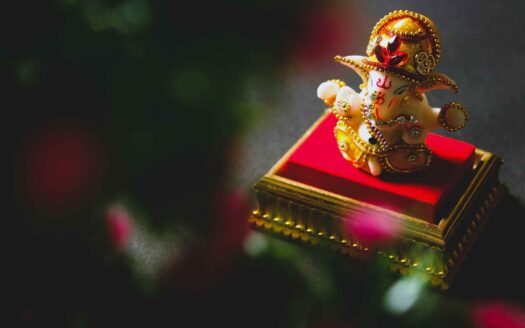Shravan: The Auspicious Month of Devotion and Purity
Shravan, also known as Sawan, is a significant month in the Hindu calendar that holds immense importance and reverence among devotees. It falls during the monsoon season, typically from late July to late August, and is dedicated to Lord Shiva, the Supreme Being and the destroyer of evil forces.
This sacred month is filled with various rituals, fasting, and devotion, making it a time of spiritual significance for millions of Hindus across the world. Let us delve into the traditions and beliefs associated with the auspicious month of Shravan.
The Origin and Significance of Shravan
Shravan derives its name from the Nakshatra (constellation) called Shravana, which is associated with the divine energy and is ruled by Lord Vishnu. According to ancient Hindu mythology, during the Samudra Manthan (churning of the cosmic ocean), many divine objects and beings emerged. One of the significant entities that surfaced was the potent poison known as Halahala. To save the universe from destruction, Lord Shiva consumed the deadly poison.
It is believed that during the process, drops of the poison fell into his throat, turning it blue and earning him the name “Neelkanth,” meaning the one with a blue throat. The month of Shravan is associated with this event and is considered highly auspicious for seeking the blessings of Lord Shiva.
The Observances of Shravan
Shravan is a month filled with various devotional practices and rituals. One of the most prominent observances is the Kanwar Yatra, where devotees carry ornately decorated pitchers filled with holy water from the Ganges River and offer it to Lord Shiva at temples. This pilgrimage attracts a vast number of participants, especially from northern India, who undertake long journeys on foot to demonstrate their faith and devotion.
Another significant aspect of Shravan is the vratas (fasting) observed by devotees. Many people abstain from consuming non-vegetarian food and refrain from consuming alcohol during this month.
Mondays hold particular importance in Shravan as they are considered highly auspicious for fasting and offering prayers to Lord Shiva. Devotees engage in rigorous penance, visiting temples, and performing aartis (prayer ceremonies) to seek blessings and forgiveness for their sins.
Rudrabhishek, an elaborate and sacred ritual, is performed in Shravan. It involves offering various items such as water, milk, curd, honey, and sacred ashes on the Shivalinga while chanting mantras dedicated to Lord Shiva. This ritual is believed to bring prosperity, good health, and spiritual growth to the devotees.
The Impact of Shravan on Cultural Celebrations
Shravan is not only a month of religious significance but also has a profound impact on the cultural fabric of India. Many states and regions in the country celebrate festivals during this time. Raksha Bandhan, a festival celebrating the bond between brothers and sisters, usually falls in the month of Shravan. Sisters tie sacred threads called “rakhis” around the wrists of their brothers, who, in turn, promise to protect and support them. This festival reinforces the importance of familial bonds and love.
Janmashtami, the birth anniversary of Lord Krishna, is another significant festival celebrated during Shravan. Devotees observe fasts, engage in devotional singing and dancing, and participate in reenactments of Lord Krishna’s life events.
The Symbolism of Sawan
Shravan signifies not just external rituals and observances but also internal purification and self-discipline. It encourages individuals to cultivate virtues like restraint, devotion, and righteousness. The monsoon season itself symbolizes a period of cleansing and rejuvenation, making it an ideal time for self-reflection and spiritual growth.
Additionally, Shravan teaches devotees the importance of empathy and charity. Many people engage in acts of philanthropy, such as donating food, clothes, and other essentials to the underprivileged during this month. It is believed that such acts of kindness carry additional blessings during Shravan.
Conclusion
Shravan is a month that holds immense spiritual significance and devotion for Hindus worldwide. Through various rituals, fasting, and acts of kindness, devotees seek to purify themselves and connect with the divine.
The month of Shravan not only reinforces religious beliefs but also strengthens familial bonds and promotes the values of self-discipline, empathy, and charity. As millions of devotees engage in these practices, they experience a sense of unity and reverence, making this holy month a truly sacred and transformative time of the year.




